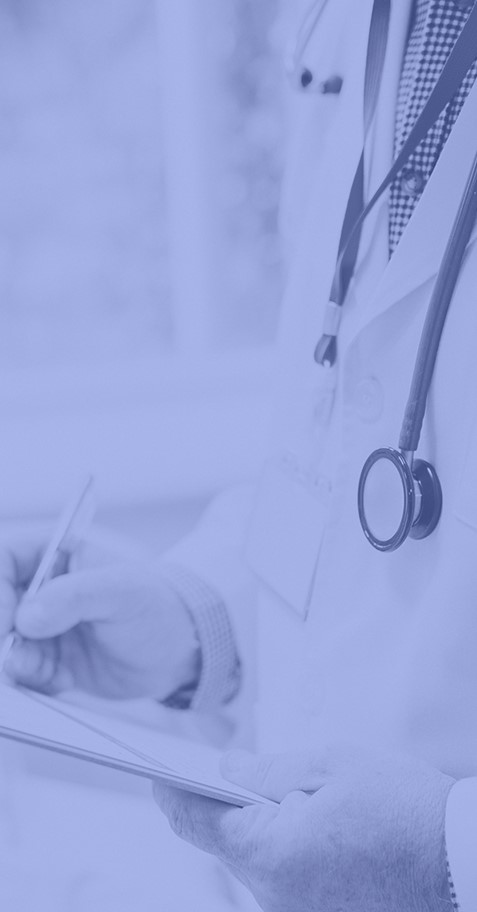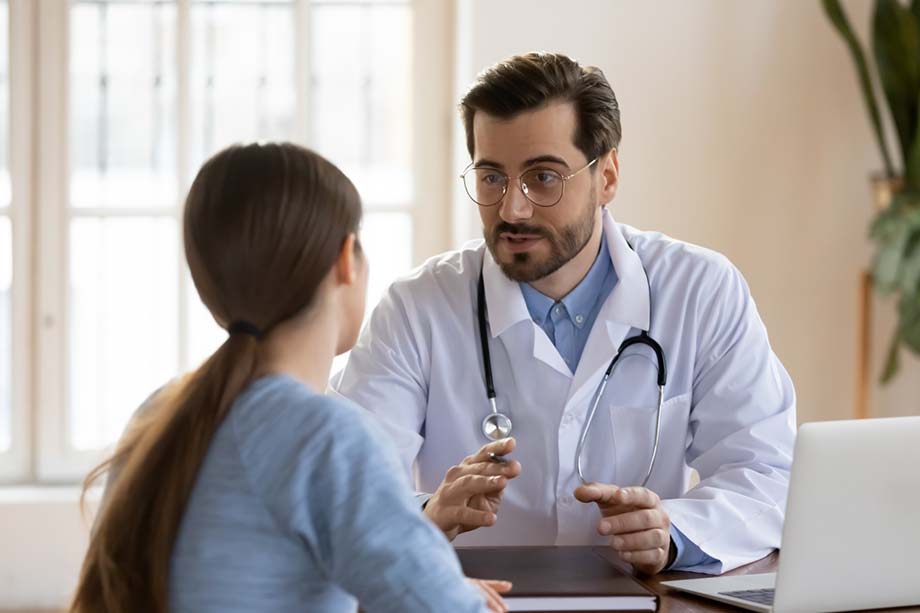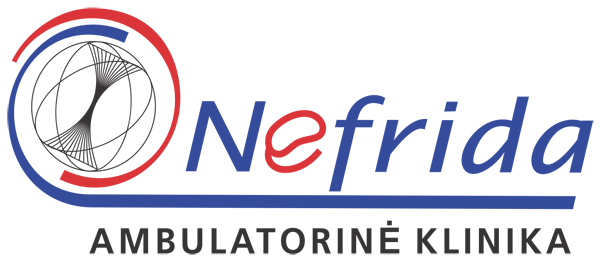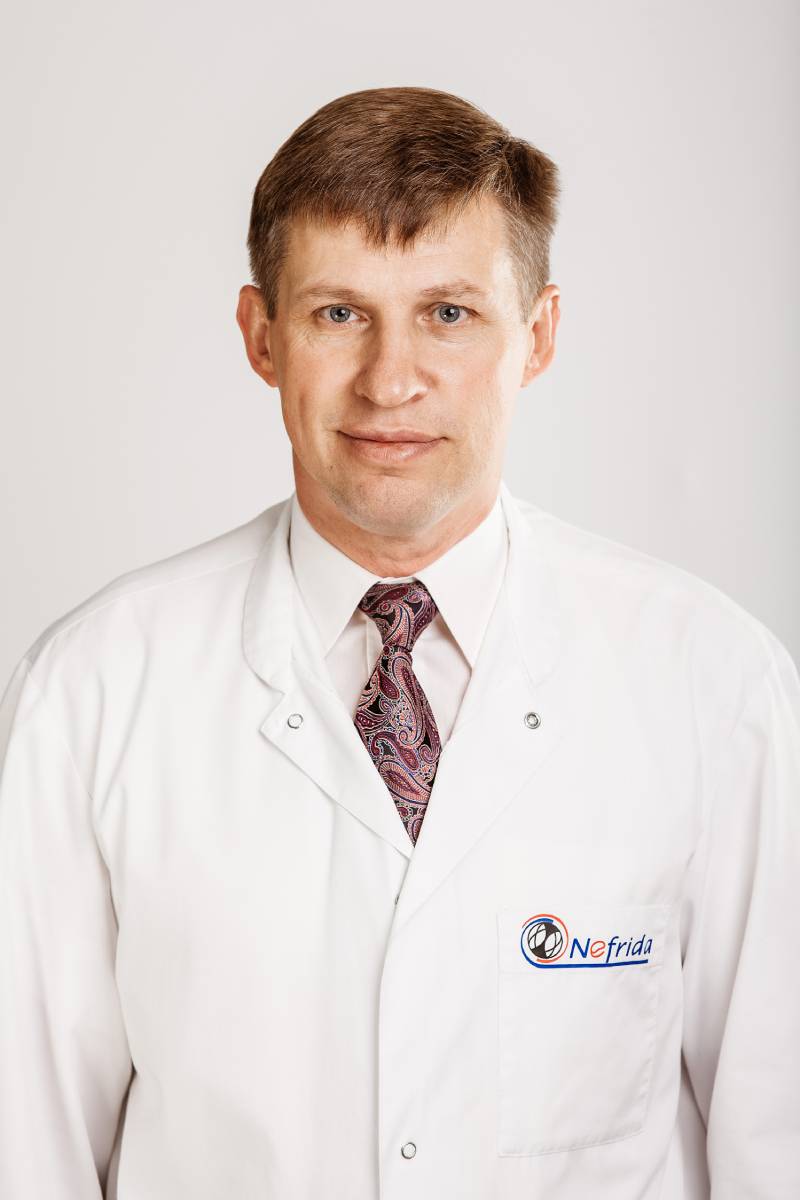

Family medicine
Your health and the health of your family members is the greatest treasure. Each of us must take care of personal health and the health of our relatives, therefore, you should visit your family doctor regularly.
Registration by phone
+370 46 397070Family doctors working at the clinic “Nefrida” are responsible and professional in taking care and preserving the health of registered patients. Furthermore, they provide the high quality disease treatment and prevention services.
In our clinic, all primary care and treatment services are provided free of charge to registered patients.
If you want to register at the clinic “Nefrida”, save your time by filling out the application form for registration and submitting it with an identity document upon coming at the clinic.
Recommended doctors
Information after procedures
Often, after the procedure in the doctor’s office, patients have questions that they do not dare to ask during the visit or that come to mind only later. In this section, you will find in advance all the most useful information that you should know in the post-procedural period.

How to register with a medical facility and doctor?
You can register at UAB “Nefridos” clinic in the following ways:
- After filling out the electronic application form: https://www.nefrida.lt/tapti-pacientu
- At the clinic reception, you can fill out the application form no. 025-025-1/a and submit it to the clinic reception staff.
Is the referral issued by the family doctor valid in other medical institutions?
Yes, the referral is valid in all Lithuanian medical institutions that have signed an agreement with Territorial Sickness Funds – in all state polyclinics and private medical institutions.
What to do if the health has not improved after the prescribed treatment?
See your doctor again.
F.A.Q.
If you are hesitating whether you really want to make an appointment for a procedure in our clinic, we invite you to read the frequently asked questions section prepared by our doctors. In it, you will find all the answers to your questions even before the procedure, so you can feel confident in your choice!
When should you visit your family doctor?
You can consult a family doctor for various issues – if you feel symptoms of a cold, flu, or fever, if you want to get a certificate of incapacity for work, or buy prescription drugs. You must also consult a family doctor to see any other specialist in another field. The family doctor performs health checks for school, work, driver’s license and issues certificates. Consult a family doctor after the birth of a child and don’t forget to visit a prophylactic once a year to check your health.
When do you (not) have to pay for the doctor's services?
The Nefrida clinic provides the following personal health care services free of charge (they are paid for by the TLK):
- Necessary (urgent) medical assistance (for all residents of the Republic of Lithuania, regardless of whether they are covered by compulsory health insurance or not. Also for citizens of EU countries, upon presentation of a valid E-form certificate confirming coverage by health insurance).
- Primary ambulatory personal health care services, provided in a health care facility or at the patient’s home, to patients covered by compulsory health insurance and who have concluded a contract for the provision of primary personal health care services with UAB “Nefridos” clinic.
- Secondary ambulatory personal health care services – consultations by medical specialists, for patients covered by compulsory health insurance and having referrals from family doctors, pediatricians or medical specialists.
Paid personal health care services are provided at the Nefrida clinic when:
- Persons without citizenship and citizens of foreign countries who do not have health insurance and a permanent residence permit in Lithuania apply in case of non-urgent assistance.
- Patients, on their own initiative, without the recommendation of the attending physician, choose more expensive medical measures, procedures or tests than are used in the Republic of Lithuania according to established treatment methodologies and exceed the maximum funding allocated by the administration of “Nefrida” clinic for medical measures, procedures or tests, if these tests and procedures do not harm specific person’s health.
- Patients, who do not have a referral from a primary care doctor or specialist, apply to the “Nefridas” clinic on their own initiative.
- After the clinic has exhausted the funds limit stipulated in the contract with the Territorial Hospital Fund, announcing in a visible place that temporarily, due to lack of funds, it is not possible to provide certain planned treatment and laboratory and diagnostic services if the patient wishes to receive the service in an urgent manner.
- For newly registered patients (who have concluded a contract for the provision of primary level personal health care services with UAB “Nefridos” clinic) who wish to see a family doctor or pediatrician on the day of registration.
How to prepare for examinations?
Ultrasound examinations:
- Abdominal echoscopy – do not use products that cause flatulence on the eve of the examination, and do not eat or drink liquids 4-5 hours before the examination;
- Abdominal aorta pathology examination – about 8 hours before. Before the test, you need to take anti-bloating medicine. 12 o’clock do not eat before the examination, as the stomach must be empty during the examination;
- Echoscopy of kidneys, ureters, bladder – drink liquids and do not urinate before the test;
- Prostate ultrasound – we recommend drinking liquids and not urinating;
- Gynecological ultrasound – we also recommend drinking fluids and not urinating.
Blood test:
- Do not eat for at least 8-12 hours before blood sampling (it is important to remember that juice, tea, coffee, especially with sugar, are also food, you can only drink water);
- Do not exercise, rest for 10-15 minutes before blood sampling;
- Do not smoke for 1 hour before the test;
- Do not drink alcohol 1-2 days before the test;
- Do not take medication (if possible);
- Avoid stress before the procedure, sit quietly and relax for at least 10-15 minutes before taking blood;
- Do not perform x-ray contrast tests, massage, reflexotherapy or physiotherapy procedures, or surgical interventions before the blood test.
When repeating blood tests and in order to obtain the most accurate results, it is advised to perform them at the same time of day and in the same laboratory.
Urine tests:
Urine (morning) is collected in a wide-necked plastic disposable container. Before collecting urine, you need:
- Wash your hands with soap and water;
- Wash the external genitals with water, without using any disinfectants;
- Drain the external genitalia;
- Allow the first portion of urine to drain into the toilet;
- Collect about 50-100 ml of the middle portion of urine;
- Wipe the outside of the jar dry and screw the lid on;
- Write your name, surname, time of sample collection on the container.
It is not recommended for women to perform a urine test during menstruation, but 2-3 days after it. It is necessary to deliver the urine sample to the laboratory for examination within 2 hours.
Stool tests:
Feces are collected in a clean, dry plastic container with a screw-on lid. Feces (5-15 g), without impurities of urine, are taken from several places. Name and surname are written on the container.
Clinical material samples from the genitals for sexually transmitted infections:
- Do not urinate for at least 2-3 hours;
- Do not use intravaginal preparations for at least 48 hours;
- Do not wash the vagina for at least 24 hours;
- For women, come on days 18-21 of the menstrual cycle (if the disease is not acute) or on days when there is no bleeding (if the disease is acute).









